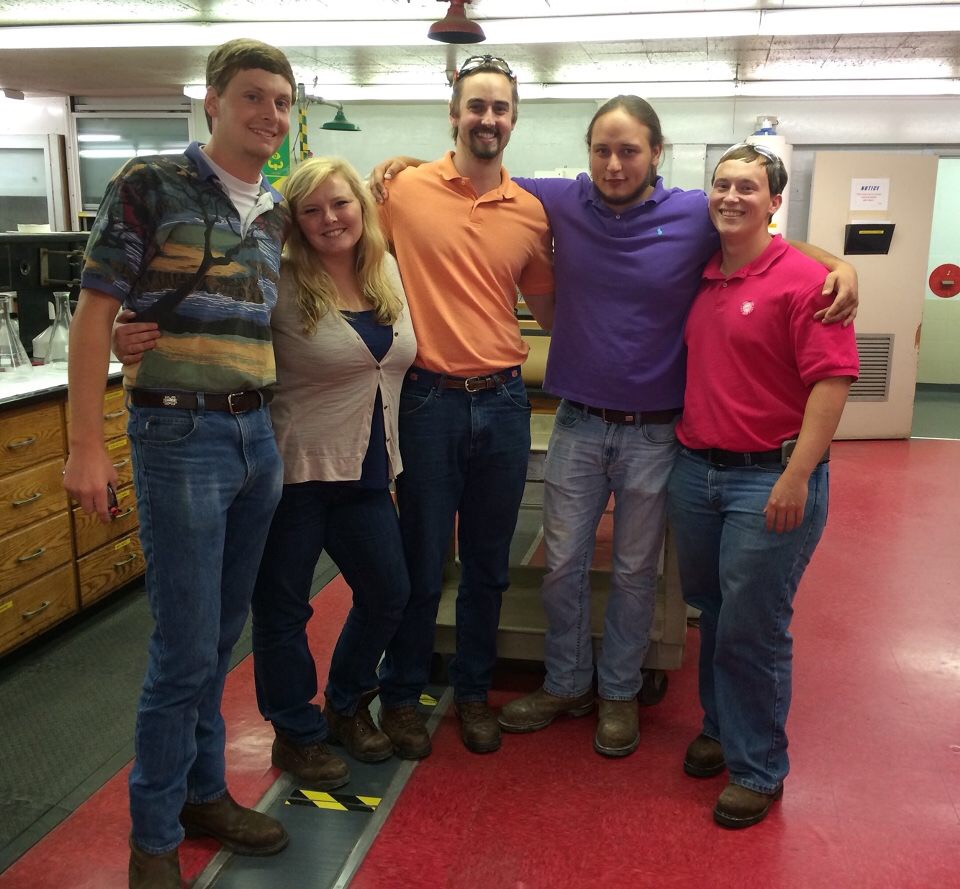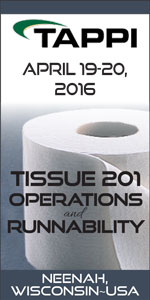 |
||||||||
| March 30, 2016 | ||||||||
| CalLeopard EC - for extreme calendering conditions |  |
|||||||
|
· Subscribe to Ahead of the Curve · Newsletters · Ahead of the Curve archived issues · Contact the Editor
|
Attracting Engineering Grads By Samuel Fordham 
Co-op students in the technical lab at Packaging Corp. of America’s Counce, Tennessee mill, in 2015 (from left): Jerrod Farrington, K.C. Baddley, Robert Miller, Jon Moraga, and author Samuel Fordham. Moraga currently works at PCA, and Baddley and Miller will join the company after graduation; Farrington is now employed at International Paper, and Fordham will join IP in June. It’s spring and that means days are getting warmer, nights are getting shorter, and flowers are blooming; it also means thousands of soon-to-be engineers are looking for jobs. A great way to meet with students and generate interest in your organization is to meet with student organizations. These meetings provide an excellent opportunity for students to connect one-on-one with a member of your organization. This is great because whom they’ll be working with is a major concern for soon-to-be engineers. Students realize that engineering requires long hours and lots of teamwork—thus, lots of time with peers. Hosting a meeting with a student organization allows you to show potential employees that current employees are enthusiastic, friendly, and open to the free flow of information that Millennials prefer. Young engineers also realize that, given the ever-changing work environment, we must continually change and adapt, making ourselves stronger in both the technical and personal aspects of our career. Many engineering students are working hard to set themselves apart by choosing minors, actively participating in campus organizations, and making plans to continue their education after college. A great way to make your company stand out is to show that you are willing and excited to invest in employees—on both a professional and personal level—to help them achieve success. This can be done in many ways. Engineers want to learn, and companies can help them by implementing mentorship programs, hosting technical classes, and providing aid to those wishing to further their education. Companies can also show an interest in the personal development of employees through the availability of employee counseling services, company fitness centers, and allotting time with organization leaders outside of the workplace. While young engineers are being developed, they want to be able to show that they are knowledgeable, “hungry,” and willing to work in order to succeed; thus it is important to let students know they will be entering into a challenging workspace. Engineering students want to be challenged and enjoy the opportunity to display their aptitude and ability to adjust to change. In my experience, there are no two days that are the same in the pulp and paper industry and there are constant challenges to profitable production. It is important to let engineers know that they will be challenged in new and varying ways every day they go to work. Young engineers also want to know that their ability to succeed in a challenging workplace will be rewarded. While all opportunities are subject to a variety of considerations, it is important that young engineers realize that their hard work will pay off; companies need to let students know about all the opportunities available to them if they are willing to rise to the challenge. This is a critical time for the paper industry—many people who have the knowledge that makes the industry successful are reaching retirement age. Not all young engineers realize this. Companies should reminded potential employees about this fact, so they know there are ample opportunities for those willing to work hard to help facilitate the mass transfer of knowledge needed to keep our industry vibrant in the coming years. When hiring young engineers it’s important to let them know that the people they will be working with care about them and want them to develop on both a personal and professional level. Let them know how your company will help them succeed in a challenging, rewarding work environment so they can reach their fullest potential. Samuel Fordham is a Chemical Engineering student (Class of 2016) at Auburn University, and current president of Auburn’s TAPPI Student Chapter. Now that you are Ahead of the Curve, stay there by joining TAPPI.
For a modest investment of $174, receive more than US$ 1000 in benefits in return. |
|||||||
 |
||||||||
